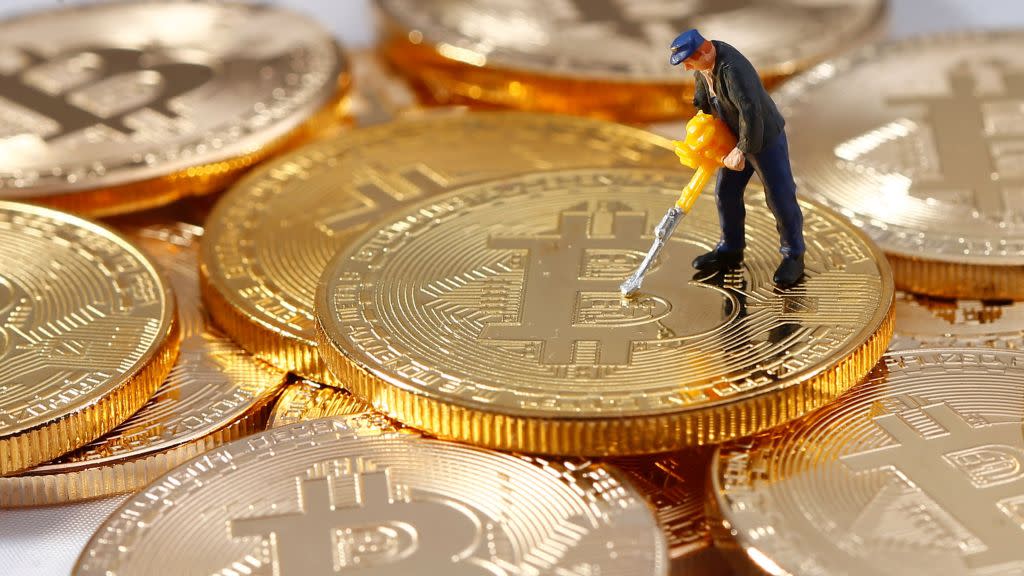Leek, candy, and big pancake: The slang Chinese crypto traders use to hide from the authorities

If you suddenly found yourself in a chat group where Chinese investors buy and sell cryptocurrencies, chances are high that you’d get frustrated quickly, even if you can read the language.
Why are people enthusiastically talking about the prices of pancakes and egg tarts? Why the hell is someone trying to buy a concubine? Is this some kind of hipster community that is obsessed with avocados?
While crypto enthusiasts in the West have created a lexicon of their own, a parallel slang is flourishing in the crypto trading community in China, a country that once dominated global bitcoin trading before authorities cracked down on local exchanges in September.
Chinese crypto investors are still trading peer-to-peer on services like WeChat and encrypted apps like Telegram, and discussing trades on online forums like 8btc.com. The jargon helps avoid further government intervention by obscuring their intentions from prying eyes. They probably won’t thank us for this, but here’s a glossary to help demystify what’s going on.
Investors
币圈 (Bì quān) — Literally “coin circle.” Refers to the crypto space.
大佬 (Dà lǎo) — “Boss.” Refers to a trader with a lot to invest. The equivalent to a “whale” in Western crypto slang.
狗庄 (Gǒu zhuāng) — “Dog banker.” From gambling and stock-market parlance: retail investors use the term to refer to big-time traders who can easily move the market and burn them. Typically used in complaints.
韭菜 (Jiǔcài) — “Leek.” Also borrowed from stock markets: It’s a metaphor for newbie investors who get “harvested”—that is, they follow the lead of seasoned investors but often end up losing their money. Fortunately, they can grow back when other naive newcomers spring up to replace them.
老韭菜 (Lǎo jiǔcài) — “Old leek.” By extension, a longtime retail investor who routinely gets burned by whales over time.
币妈 (Bì mā) — A shorthand for biquan dama, which means “coin-circle aunties.” Dama refers to middle-aged Chinese women who are hungry for new assets but lack basic investment knowledge and skills (pretty much the same gendered concept as the bitcoin grandma featured in one well-known business paper). The term was first floated when middle-aged investors rushed to buy physical gold in 2013, pushing up global gold prices. Then they flocked to local stock markets amid a historic bull run—followed by an inevitable meltdown—in 2015. Crypto appears to be the “aunties'” newest playground.
Transactions
囤币 (Tún bì) — “Hoarding coins.” To stay invested in cryptos and buy more of them over time. The Western equivalent of “hodl.”
糖果 (Tángguǒ) — “Candy.” Refers to free token giveaways in exchange for signing up for ICO projects. Roughly the same as “airdrop” in Western slang.
薅羊毛 (Hāo yángmáo) — “Pulling out the wool.” From financial markets: refers to the activity of investors who try to make money in the long run by hunting for bonuses offered by banks and other financial institutions. In the crypto space, hunting for candy, for example, is one way to “pull out the wool.”
割韭菜 (Gē jiǔcài) — “Cutting leeks.” Pretty much what it sounds like.
搬砖 (Bān zhuān) — “Moving bricks.” The slang term for arbitrage, the simultaneous buying and selling of the same asset in different markets in order to take advantage of different spreads offered by brokers. For example, arbitrage traders buy cryptos in open markets like Japan, and sell them at a premium in banned markets like China.
梭哈 (Suōhā) — The transliteration of “Show Hand,” a variant of five-card stud poker made popular by Hong Kong gambling films. Here, it means “all in.” One popular but sexist meme in the Chinese crypto community goes, “Show Hand, Show Hand, all Show Hand. If win, order young models at clubs. If lose, go and do farm work.”
Some other trading terms to get familiar with:
Chinese crypto trader slang, contd.
破发 pō fā = when an ICO token drops below its original ICO price
聪 cōng = 1 satoshi (literally the kanji for Satoshi)
砸盘 zá pán = dumping a coin and crashing the price
拉盘 lā pán = pumping a coin with buy orders
— Eric Meltzer (@wheatpond) April 14, 2018
Coins
There’s a slang term for every major crypto coin. And as you can tell, they are predominantly named after food that sounds similar:
Slang | Refers to… | Pinyin | Literally means… |
|---|---|---|---|
大饼 | Bitcoin | Dà bǐng | Big pancake |
小饼 | Bitcoin cash | Xiǎo bǐng | Little pancake |
大姨太 | Ethereum | Dà yítài | Big concubine |
小姨太 | Ethereum classic | Xiǎo yítài | Little concubine |
辣条 | Litecoin | Là tiáo | Spicy stripe |
柚子 | EOS | Yòuzi | Grapefruit |
蛋挞 | DATA | Dàntà | Egg tart |
阿姨 | Aeternity | Āyí | Aunt |
牛油果 | Enumivo | Niúyóuguǒ | Avocado |
Read next: Buy and hodl, just don’t get #rekt: The slang that gets you taken seriously as a bitcoin trader
Sign up for the Quartz Daily Brief, our free daily newsletter with the world’s most important and interesting news.
More stories from Quartz:
